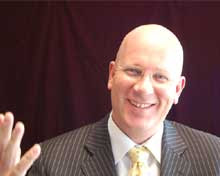Questia
2009/10/04
According to author Michael Michalko, "Even if you're not a genius, you can use the same strategies as Aristotle and Einstein to harness the power of your creative mind and better manage your future."
Harnessing Your Creative Powers:
Think Like a Genius
According to author Michael Michalko, "Even if you're not a genius, you can use the same strategies as Aristotle and Einstein to harness the power of your creative mind and better manage your future."
In The Futurist article "Thinking like a Genius: Eight Strategies Used by the Supercreative, from Aristotle and Leonardo to Einstein and Edison," he explains that "geniuses think productively, not reproductively.
"When confronted with a problem, they ask 'How many different ways can I look at it?'... and 'How many different ways can I solve it?' instead of 'What have I been taught by someone else on how to solve this?' They tend to come up with many different responses, some of which are unconventional and possibly unique."
Michalko notes, "Geniuses prepare themselves for chance. Whenever we attempt to do something and fail, we end up doing something else. That is the first principle of creative accident. We may ask ourselves why we have failed to do what we intended, which is a reasonable question. But the creative accident provokes a different question: What have we done? Answering that question in a novel, unexpected way is the essential creative act. It is not luck, but creative insight of the highest order."
And "Geniuses produce. A distinguishing characteristic of genius is immense productivity. Thomas Edison held 1,093 patents, still the record. He guaranteed productivity by giving himself and his assistants idea quotas. His own personal quota was one minor invention every 10 days and a major invention every six months. Bach wrote a cantata every week, even when he was sick or exhausted... T.S. Eliot's numerous drafts of "The Waste Land" constitute a jumble of good and bad passages that eventually was turned into a masterpiece."
Check out more thinking strategies of creative geniuses, keeping in mind Michalko's advice that "Recognizing and applying (them) could help make you more creative in your work and personal life."
Monday, October 5, 2009
Subscribe to:
Post Comments (Atom)

No comments:
Post a Comment